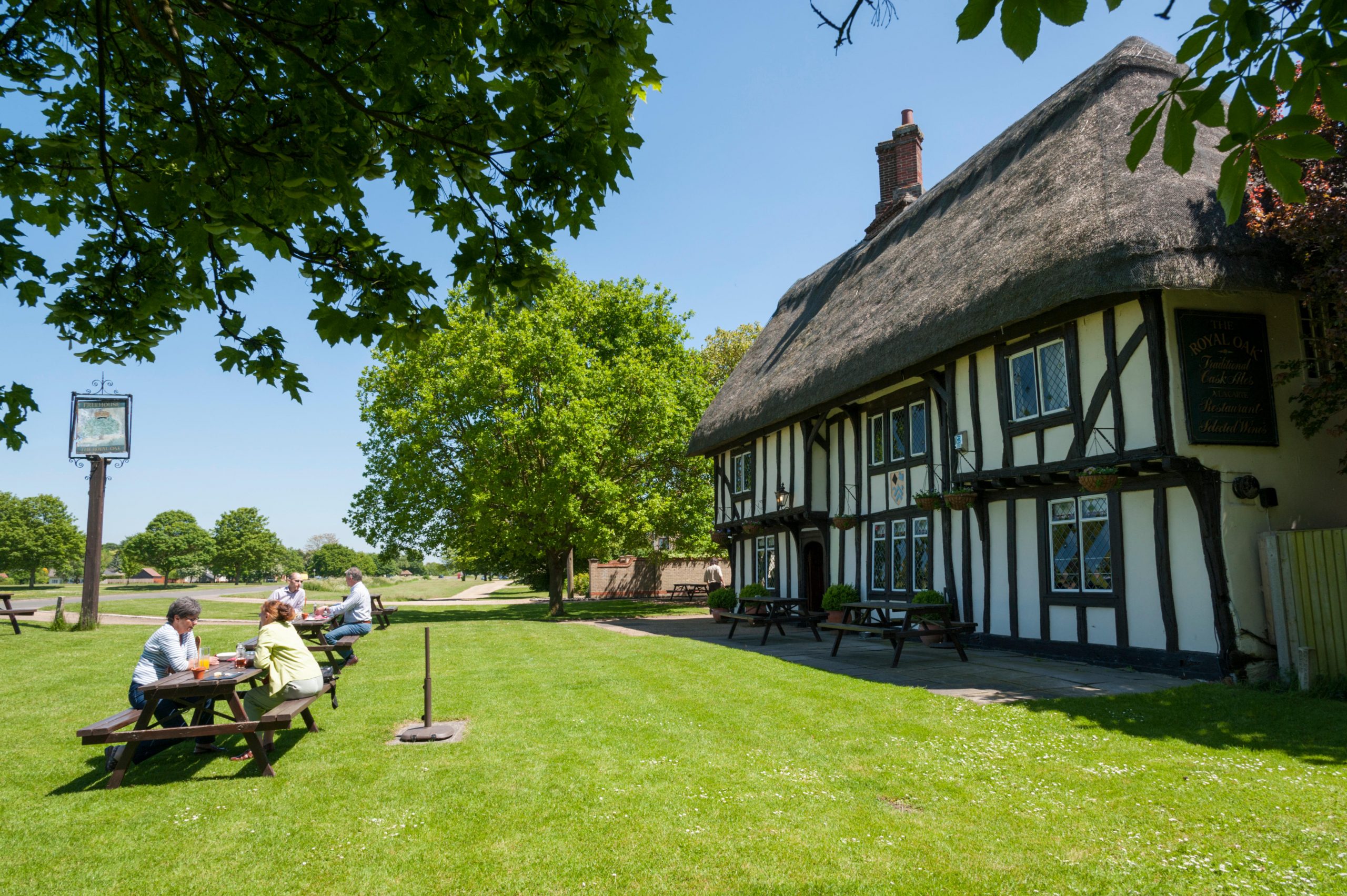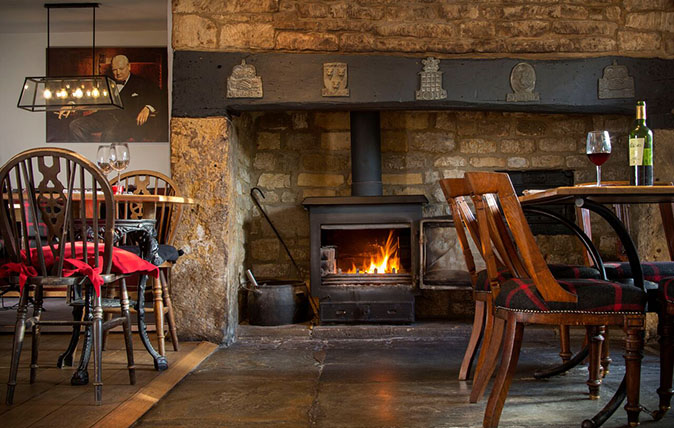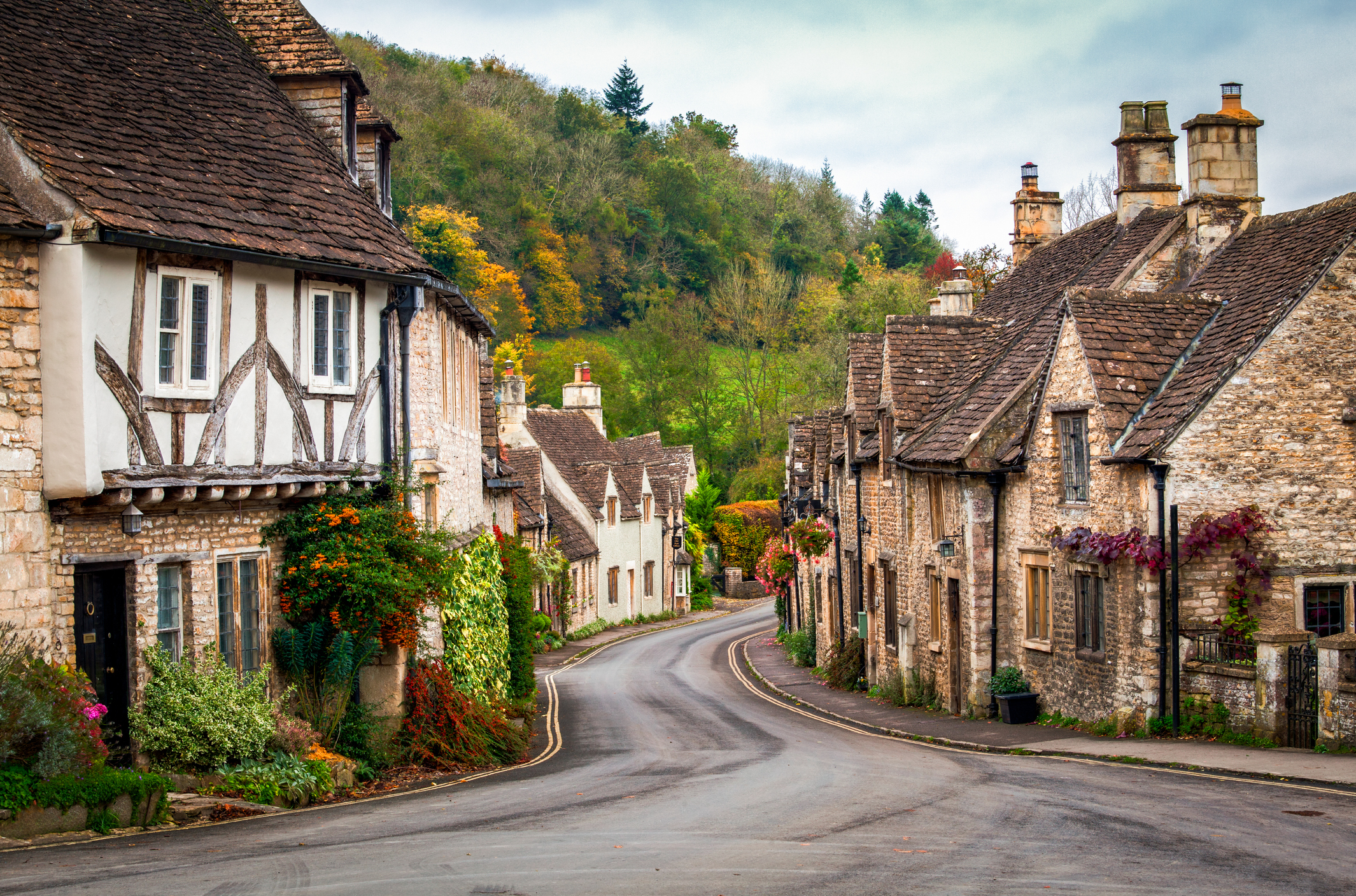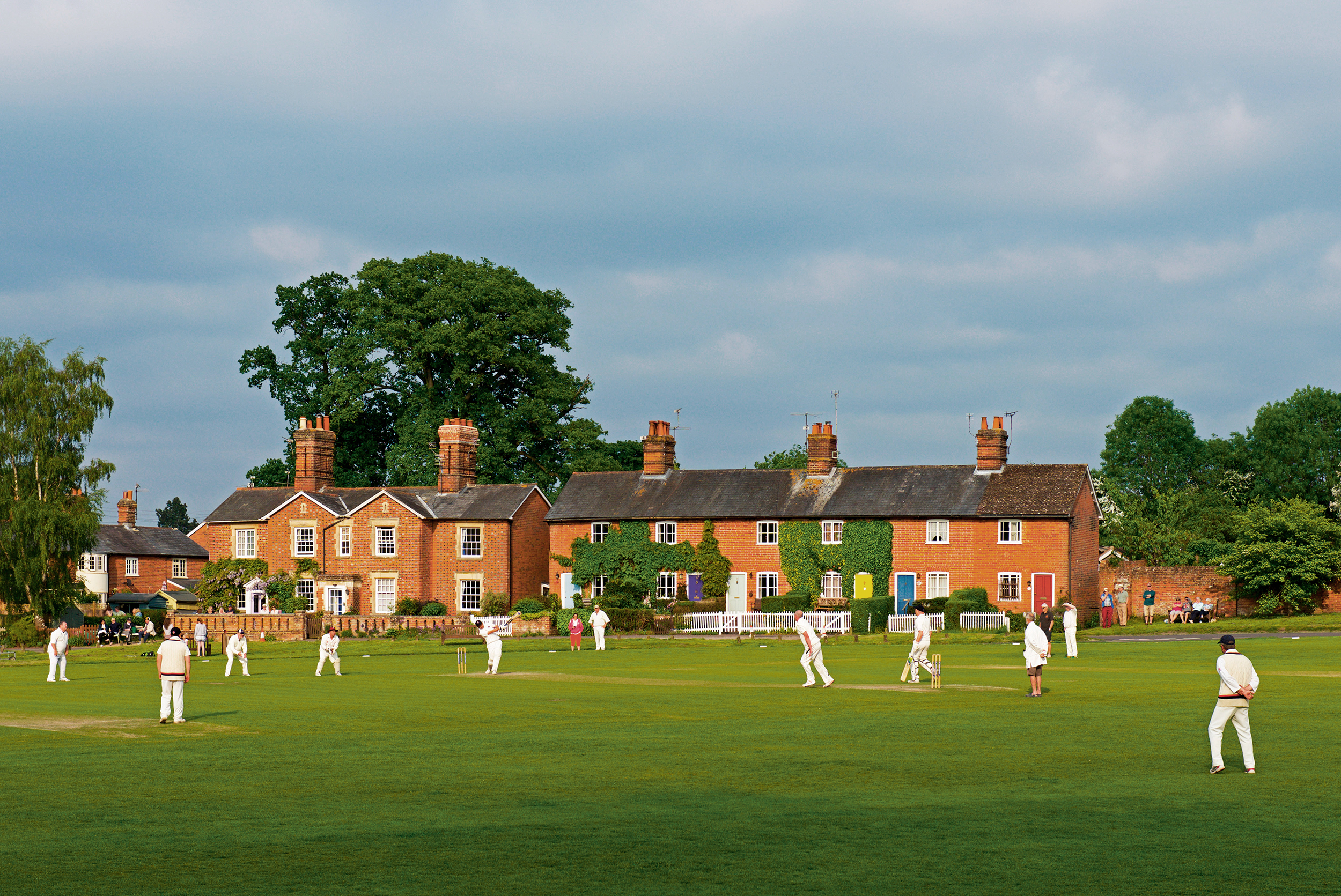The plucky villagers battling to save their local village pubs
The fight to save rural pubs is ongoing, but, as Jane Wheatley reports, communities across the country are coming together to secure theirs for the next generation.


A village is a sad place without a pub. In the country, the golden glow from a saloon bar window is often the single point of light on a dark evening, a promise of warmth and human connection. The Cotswold village of Stonesfield near Woodstock, Oxfordshire, lost its last remaining pub when The White Horse closed in March 2020. The owner had already converted the lovely old skittle alley into a house and then sold the pub itself to a property developer. It has now been boarded up for two years.
Often, the market value of a pub is much less than the building’s potential as residential housing and, since the surge in demand for country living after the pandemic sent people fleeing from cities, pubs are even more vulnerable to applications for change of use.
Some owners deliberately run a pub down, keeping erratic opening hours for example, or simply close the doors and sit on the property until it is no longer viable as a business, hoping that the local council will eventually look favourably on its redevelopment as housing. However, a growing number of rural communities threatened with the permanent loss of their drinking hole has refused to take defeat lying down. The 2011 Localism Act enables them to register the pub as an asset of community value (ACV) and allows a moratorium of six months in which to raise the purchase price and make a bid for ownership.
"We knew what the village wanted — a pie and a pint, not a gastro pub"
The battle can be long and hard — it took 12 years for the residents of Skeeby, a North Yorkshire village listed in the Domesday Book, to buy back The Travellers Rest. In the village of Woodcroft in Gloucestershire, The Rising Sun lay vacant for 10 years until the owner, a property developer, finally agreed to sell it to a group of residents who had raised £350,000 in a share offer. Now, the Government’s new Community Ownership Fund will help them restore the building, which has been badly damaged by thieves and vandals.
When The White Horse at Stonesfield went up for sale, locals acted swiftly — they registered the 150-year-old pub as an asset, created a community group and launched a share offer to raise the asking price of £395,000. Nonetheless — despite their offer to buy the property at the full price — in early 2021, the owner sold it to a property developer for £10,000 less. ‘It was probably sour grapes,’ speculates group chair Steve Callaghan. ‘We had objected when he converted the skittle alley and again when he wanted to build houses on the car park.’ The group then offered to buy back the pub from the new owner, Jonathan Bowers, for £60,000 more than he had paid, but he turned them down. ‘We write to him every three months with our offer — he doesn’t reply,’ laments Mr Callaghan.
We are standing in early-spring sunshine, looking over a stone wall into the pub’s pretty garden. A few weeks ago, the sign crashed down onto the road outside the front door and the roof has been losing tiles. Mr Callaghan points out new windows on the upper floor. ‘The builder installing them said it was going to be a house,’ he says. ‘We immediately reported this to the planning enforcement officer.’ Villagers also help to keep a beady eye on the property. ‘If a light goes on in a window, we get 10 emails. The campaign has united the community,’ enthuses Mr Callaghan
The group’s treasurer, film producer Peter Smyth, recalls moving to the village in 2017: ‘I made my first friendships at the pub. I looked forward to coming back from London on a Friday night, catching up with everyone.’
Exquisite houses, the beauty of Nature, and how to get the most from your life, straight to your inbox.
If the pub doesn’t re-open, the group will ask the local authority to consider placing a compulsory purchase order on the property. ‘I think we’ll start to have a case once Mr Bowers has owned it for 18 months,’ notes Mr Smyth.
When The Fox Inn at Loxley near Stratford- upon-Avon, Warwickshire, was put up for sale in April 2019, residents of the village feared their only pub would be redeveloped for housing. Once a thriving local, it had changed tenancies several times over recent years, was in a sorry state and the brewery wanted it off its hands. Residents resolved on a bold bid to buy the place — a few years earlier, they had successfully resisted attempts to close the village school and community confidence was high.
Within months, a share launch had raised £270,000 from many small investors, including several from overseas with local connections. A grant and a £50,000 bank loan from the Plunkett Foundation, which supports community enterprise, secured the final purchase in September 2020. Volunteers made good use of the lockdowns, refurbishing the property and the garden. ‘People revealed hidden skills — one woman reupholstered all the chairs,’ explains shareholder Laura Mitchell.
We meet for lunch at The Fox, neat as a pin with freshly painted cream-and-blue woodwork. ‘Everything you see has had a volunteer’s hand on it and, when we got local tradesmen in, most refused to take payment,’ notes Yvonne Brocklehurst, the chair of the group, which employs a manager and chef. ‘We told them: “Source food locally and don’t let anyone leave hungry.”’
Volunteers man the bar and kitchen on the couple’s day off and help out at busy times, with young part-timers filling in the gaps. ‘We knew what the village wanted — a pie and a pint, not a gastro pub,’ asserts Mrs Brocklehurst. As we chat, there is a rumble of engines outside and three tractors swing into the car park, disgorging farm workers ready for a lunchtime ale. The pub hosts a book club, a weekly quiz and live music, as well as shooting parties and walking and cycling groups.
Despite Covid restrictions, The Fox managed to break even in its first year of trading. ‘A community pub doesn’t need to make a profit,’ attests Mrs Mitchell. ‘It is for everyone — we all own it,’ adding with a smile: ‘I remember one dark, foggy evening hearing voices and seeing torches bobbing up and down, all heading for the pub. That was quite a moment — I thought, “We all did this”.’
Tucked under the lee of the Black Hill at the far end of the long, straggling village of Craswall, The Bull’s Head may be the most remote pub in Herefordshire. For decades, this whitewashed drover’s inn with its flagstone floors, hole-in-the-wall bar and framed photos of champion Hereford bulls provided respite to walkers, cyclists and pony trekkers, as well as locals. It was always hugely popular and packed on weekends.
New owners took over in 2008, but closed six years later, prompting suspicion that they hoped to sell it for residential use. They had form — a popular pub they had owned on the edge of Hereford became a private house after their tenure. A grassroots campaign to save The Bull’s Head, which attracted enthusiastic support, came to nothing until the Townleys, a local family already running a successful food and farming enterprise, eventually persuaded the now-expat owners to sell.
‘It was love at first sight,’ recalls Jake Townley on being taken to look at the pub. ‘If anywhere could capture the spirit of the Black Mountains, this was it. There’s a romance to it — as soon as you walk through the door, you’re in another time and place.’
A talented chef, Mr Townley created a restaurant on the upper floor serving seriously good food — ‘it could never work financially only as a boozer’ — but kept the original bar just as it was. Locals can walk in with their boots on and discuss the price of lamb over a beer and riders will once again be able to tether their horses in the adjoining paddock.
Mourned by regulars for seven years, the pub finally re-opened in December 2021, restored with its original charm intact — you still have to duck your head on entry.
For further information on the campaign to save The White Horse, visit www.backthewhitehorse.com; The Fox at Loxley (01789 840933; www.foxloxley.co.uk); The Bull’s Head (01981 510616; www.wildbynaturellp.com/the-bulls-head-inn).

Credit: The Churchill Arms, Paxford
The Churchill Arms, Paxford review: A Cotswolds village pub with fine dining pedigree

Credit: Getty
14 things everyone should know before moving to a village in the country
For the uninitiated, the unwritten rules and subtle nuances of rural life can be baffling. Giles Kime offers city dwellers

Sporting Life: Why now is the time to get involved with your village cricket team – before it goes the way of the pub and the post office
Village cricket is going through something of a crisis – so now is the time to get out there and get
Country Life is unlike any other magazine: the only glossy weekly on the newsstand and the only magazine that has been guest-edited by His Majesty The King not once, but twice. It is a celebration of modern rural life and all its diverse joys and pleasures — that was first published in Queen Victoria's Diamond Jubilee year. Our eclectic mixture of witty and informative content — from the most up-to-date property news and commentary and a coveted glimpse inside some of the UK's best houses and gardens, to gardening, the arts and interior design, written by experts in their field — still cannot be found in print or online, anywhere else.
